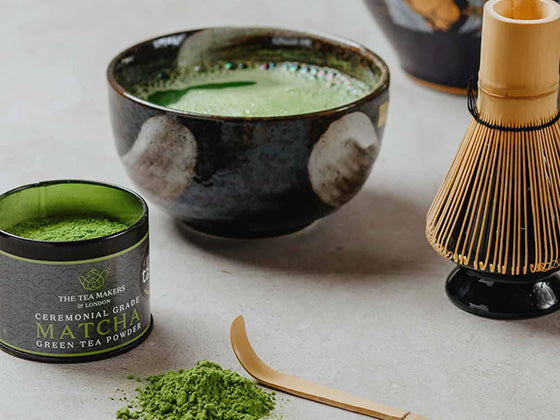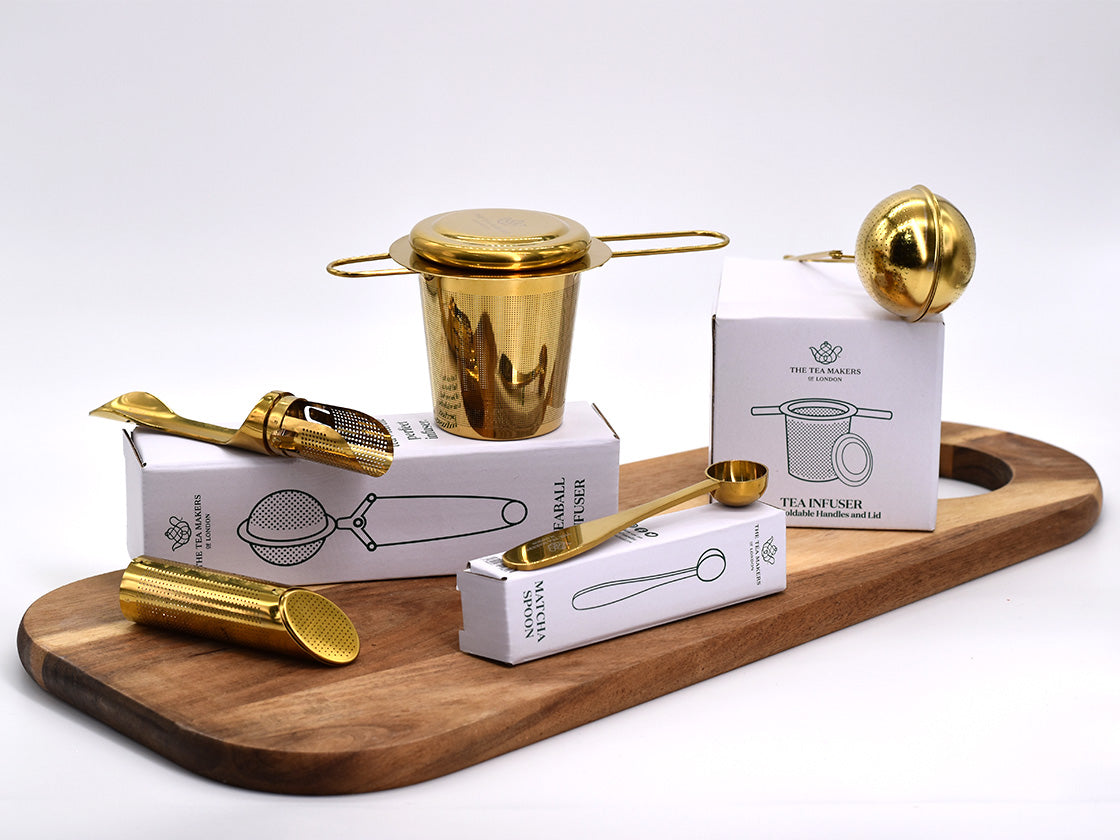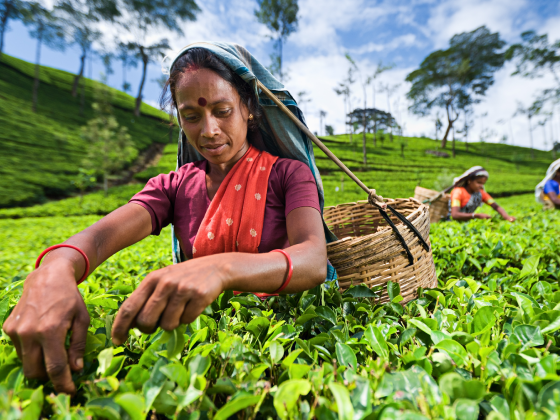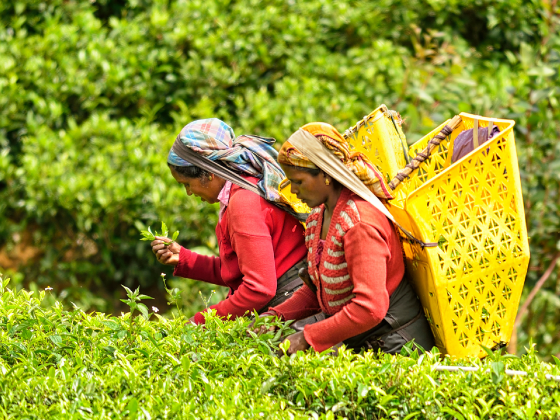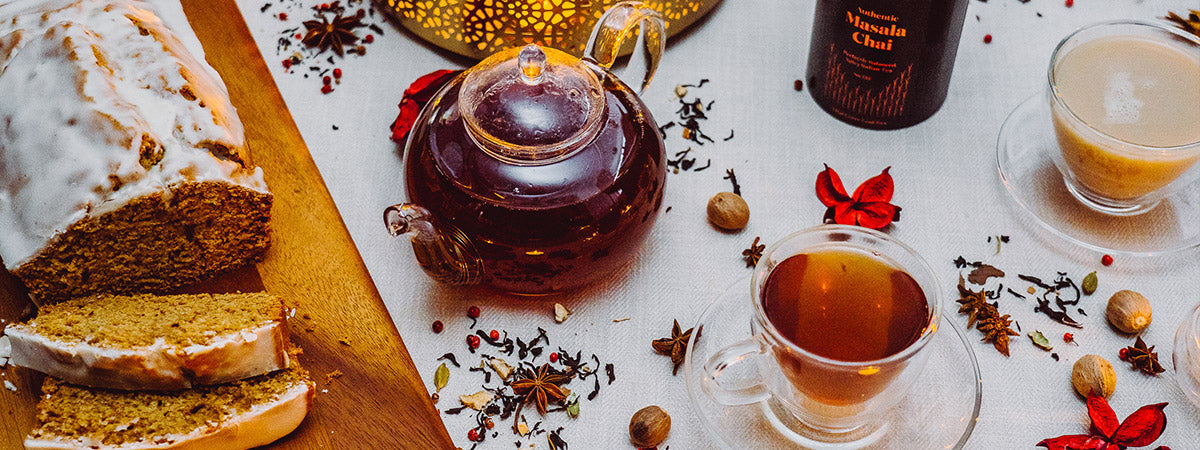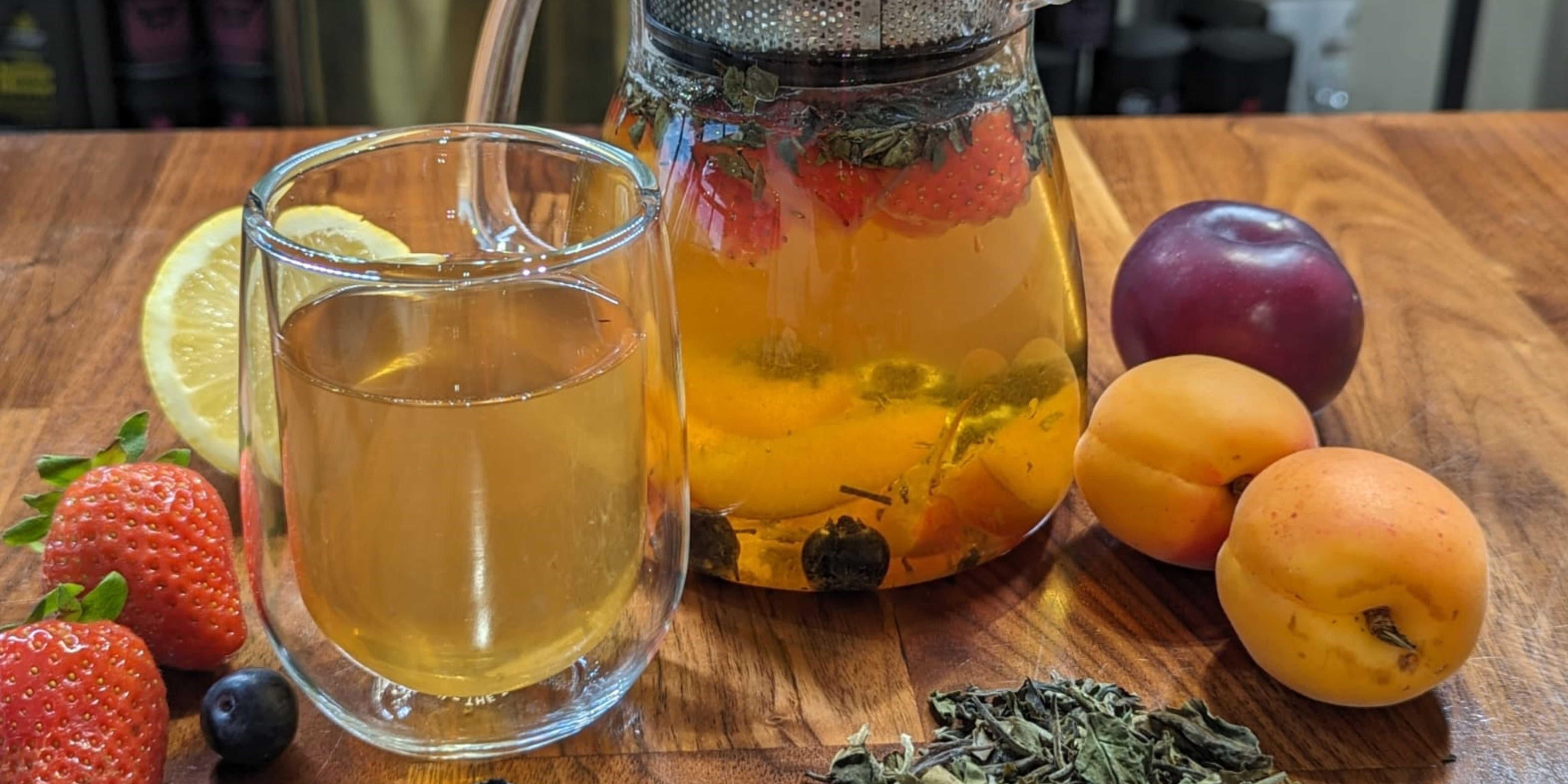The Ultimate Guide to Chai Tea
Chai tea is one of those drinks which has burst onto the scene in the last few years, with most cafes offering chai tea latte on their menu, but the roots of this spiced brew go back much further.
In this blog we will cover all things Chai; from its origins and heritage to the variants of this tea, and the health benefits chai can provide.
What is Chai Tea?
‘Chai’ in Hindi simply means ‘tea’, so when we say chai tea, we are really saying ‘tea tea’! As the use of Hindi would suggest, Chai comes from India.
Chai tea is typically spiced, using a variety of traditional Indian ingredients such as ginger, cardamom, cinnamon, black pepper, cloves and bay leaves to name a few. Many families in India have their own recipe and spices which they like to use.
Chai teas are traditionally brewed in a mix of water, milk and sugar for an extended time over a heat source. In India and many other places in Asia chai is sold by street vendors from giant pots which are continuously heated.
Where does Chai Tea Come From?
Chai tea originated in India. Commercial tea production began in India in the 19th century, and by the early 20th century it was being consumed throughout the country by people in all walks of life.
Its consumption was promoted by the ‘chaiwallas’, street vendors selling their chai to passers-by.
This chai was typically made with lower quality tea leaves, water buffalo milk and sugar.
The history of chai is deeply intertwined with Indian culture and Ayurveda, an ancient system of medicine that emphasises the balance of mind, body, and spirit.
Over time, chai became a popular drink enjoyed by many for its rich, warming flavours, and the brew evolved and spread with regional variants emerging both inside and outside of India.
Types of Chai Tea
Masala Chai

‘Masala’ refers to a blend of spices used in traditional Indian cuisine to flavour food and drinks. Thus, masala chai translates as spiced tea.
Our Masala Chai is the perfect choice if you want to enjoy a full bodied authentic Indian tea. Packed with cinnamon pieces, cardamom pods, nutmeg, saffron, fresh ginger pieces and black peppercorn, all tied together with the finest quality Assam leaves. Choose between loose-leaf chai or our environmentally friendly teabags.
Origin: Assam, India
Taste: Masala Chai offers a fruity and spicy aroma and bright orange infusion. A balanced cup with orange, cardamom notes and gentle cacao and vanilla mouthfeel.
This tea is full-bodied and surprisingly non-acerbic when drunk black but is also delicious with the addition of milk and sugar.
How to brew: Boil 200ml water to 100C, add 2-4 g of the tea and brew for 4-5 minutes. Add milk and sugar according to own preference or enjoy black.
For the traditional method, combine equal parts water to milk in a pot and bring to the boil. Once boiling, add the tea and sweetener and brew for 5 minutes or longer, depending on the desired strength. Strain through a sieve and pour into a cup. Enjoy!
Karak Chai
‘Karak Chai’ means ‘strong tea’ in Hindi, referring to robust full-bodied flavour of the tea leaves in this particular brew. This chai is particularly popular in the Persian Gulf, in places such as Bahrain or Dubai.
Fewer spices are typically used than in Masala Chai, with the Karak Chai putting the emphasis on the flavour and the strength of the tea.
Our brand-new Karak Chai embraces this tradition, providing a blend of tea leaves which rapidly produce a strong cup, lifted by the light sweetness of the authentic spices. Enjoy with milk and sugar as an authentic alternative to a chai latte.
Origin: India
Taste: As the name suggests, this a bold, rich full-bodied tea, capable of providing robust flavour even with the addition of milk and sweetener. Traditionally enjoyed with lots of milk and sugar, but enjoy it however you like!
How to brew: Boil 200ml water to 100C and brew for 3-4 minutes. Add milk and sugar according to own preference.
For the traditional method, combine equal parts water to milk in a pot and bring to the boil. Once boiling, add the tea and sweetener and brew for 5 minutes or longer, depending on the desired strength. Strain through a sieve and pour into a cup. Enjoy!
Chai of Madagascar

Inspire by the rich heritage of these spiced teas, our Chai of Madagascar is the perfect blend of tender green South African honey bush leaves, juicy chunks of ambrosial orange, fragrant bits of cocoa and delicious authentic Indian spices, resulting in a mouth-watering infusion. Ideal for enjoying during cold winter evening or as a cold brew in the summer.
It is a great caffeine-free alternative to our traditional chai.
Origin: Chai of Madagascar has been crafted with the finest ingredients across the world.
Taste: This tea offers a stunning sweet and fruity infusion, with refreshing spice flavours.
How to brew: This herbal blend needs nothing more than hot water (100C). Add 2-4g of the tea and brew for 4-5 minutes.
Chai Tea Health Benefits
Drinking Chai tea can provide a number of potential health benefits due to the range of nutritious ingredients the tea is made from:
The black tea typically used in chai is rich in antioxidants, which play a vital role in maintaining physical health and preventing diseases like cancer. Other potential health benefits of black tea include lowering blood pressure, reducing the risk of diabetes. Black tea also contains caffeine, so chai is a great source of energy and alertness.
The green honeybush used in our Chai of Madagascar is also high in antioxidants and other health benefits, such as cancer-fighting and anti-diabetic properties.
The spices used in chai tea also have a host of health benefits and have been used in Ayurvedic medicine for centuries. Ginger has been used for centuries to add digestive issues and has inflammatory properties which can aid many ailments. Cinnamon has anti-microbial and anti-viral properties, and cardamom promotes blood circulation in the body.
Our chai is free-from the preservatives and artificial flavourings often used in chai latte powders and syrups, with all the flavour coming purely from the natural igredients.
How Can I Get Started With Chai Tea?
If you're ready to embark on your Chai tea journey, we recommend trying our Masala Chai or Karak Chai to experience the true flavour of authentic Chai. The unique flavours of Indian spice in a lovely cup of Chai tea make a delicious blend, perfect for enjoying at any time of the day. For a herbal alternative, look no further than our Chai of Madagascar!

